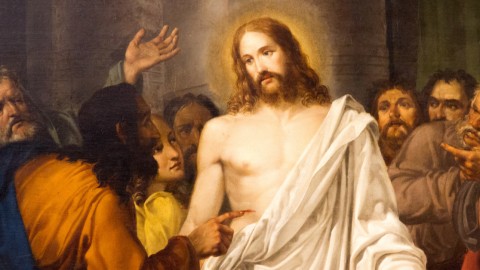Proper 15, 14 August 2022

How should we live our lives in this modern world? Christians in generations past asked, Christians yet unborn will ask, and every single Christian should ask, this question.
The letter to the Hebrews describes a Christian approach to worship: God is calling us, and we approach Him. Worship is approaching God, entering His presence, and drawing near to Him. Man drew away from God, but now our course and direction are to draw towards Him.
When Christians come to God, we do not come alone, especially in the context of worship. We join with the company of angels and saints – as the Celebrant says, “with all the choirs of heaven”. We approach God, but He is surrounded with those who have gone ahead of us.[i]
The great cloud of witnesses
Christianity is like running a race: Sometimes we fall; but the most important thing is not how many times you fall, but how quickly you stand up, and that we finish the race with God’s help. Every single one of us struggles once in a while in our walk of faith, our hope, and our love for Jesus in the world we live in.
- Many of us are drawn to Abraham whose faith was tested, and draw inspiration from his life: if Abraham’s faith was tested and he made it, then when my faith is tested, I will also make it. We always need heroes in our lives.
- When we struggle with hope, we can draw inspiration from Joseph’s life: he received undeserved mistreatment from his brothers and others, but continued to walk with God.
- Saint Chrysostom, a bishop of Constantinople[ii] in the fifth century, inhabited a world well acquainted with injustice, sickness, brutality, cruelty, disaster, war, and murder. During his time, it was no easier to watch a child die of a crippling disease or to see one’s village devastated by a military attack – most of our lives today are much easier than the time he lived in. Chrysostom experienced chilling fear, betrayal, shattered hopes, wilful misinterpretation of his motives, unfair and illegal court proceedings and judgment, and died alone in exile from the church he loved and served.
As you and I struggle at times, we’re reminded that there’s a great cloud of witnesses surrounding us; any difficulty or obstacle we face, they have also faced. We have the same enemy, who may change his mask but has not changed his tactics.
The perfect example: the Son of God
The author of Hebrews not only presents to us the “hall of fame” of saints to encourage us, but points us to Jesus Christ. He is the ultimate example of faith who has gone further in and has more completely demonstrated the virtue than anyone else; He became one of us in our humanity, while remaining one with God in His divinity. Do you think God doesn’t know what we are going through? Today’s first reading tells us that He knows what our thoughts are and what is in our hearts.[iii]
Jesus is the perfect example of how we should live. For some He was a philanthropist, miracle worker, and healer; for others, He was a rabbi; for others He was apocalyptic, a zealot or revolutionary; for others a political figure. Cardinal Ratzinger says that among His many roles, and all He did and said, the one primary thing that stands out in the four Gospels is that Jesus is the Son of God – although not many people have focused on this:
“Before all else – priest, prophet, king, Lord, and even Christ – He is the Son of God. The title “Son” in the end [is] the only comprehensive designation for Jesus; it comprises and interprets everything else.”
No wonder Peter exclaimed,
“You are the Christ, the Son of the Living God!”[iv]
Our Patriarch has said that once you answer the question, “Who is Jesus?”, all questions will be answered – because He is the Way, the Truth, and the Life.
Ratzinger continues by saying that all the actions of Jesus flowed from His relationship with the Father:
“Then Jesus answered and said to them, ‘Most assuredly, I say to you, the Son can do nothing of Himself, but what He sees the Father do; for whatever He does, the Son also does in like manner.’”[v]
The life of Jesus, the Son of God, was highlighted by the four Evangelists as going to the hills and mountains of Galilee; even though He was very tired from ministering to people, He would not miss the point when He would go to the mountain and commune with His Father. There were times when the disciples were looking for Him and asking where He went, and He said, “Why were You looking for Me? I was with My Father in heaven.”
“His words and deeds flowed from His most intimate communion with the Father. Before the baptism He was baptised in, He bent His knees on the grass of Gethsemane and called on the Father”:
“If this cup will pass from Me, let it be so; but [yet] not My will, but Your will be done.”[vi]
We always highlight Jesus’ miracles, healings, and delivering of demon-possessed people; but one thing we cannot forget is that He is the Son of God.
Living as children of God
There is no more excellent example of how to live one’s life than the person of Jesus our Lord. Sometimes what we see on Instagram and Tiktok causes people to be confused: we don’t want to be what we are, but someone else, because we see our imperfections and think someone else is better. We tend to think of things we don’t have: “How come he has this and I don’t? How come he is taller and I am shorter?” Always remember: other people might have what you do not have, but you have what other people don’t.
There is no better example of how to live in this present age and this modern world. People who have gone ahead of us had their challenges; we also have our challenges, but if they made it, we will also make it. And those ahead of us must witness our faithfulness.
Jesus’ cross, death and resurrection paved the way for the life and ministry of the Holy Spirit. Saint Paul said that God
“sent forth the Spirit of His Son into our hearts”,[vii]
that we cry out,
“Abba, Father!”
“Abba” is an Aramaic word for “father” that expresses a very intimate relationship. The Apostle Paul writes to the Gentiles who believe in Christ and are now sons, having previously been enemies: Now that you have the Holy Spirit and Christ in your life, and have been born again, you can call God not only “God”, but also “Father”.
Jesus said,
“Do not be afraid, little flock, for it is your Father’s good pleasure to give you the Kingdom.”[viii]
We sometimes wonder why God made us His sons and daughters. To be theologically correct, we have become sons through the Son: we are adopted children of God. The reason is that we might be heirs of His Kingdom.
Let us not fear, but in a challenging and modern world, let us emulate our Lord – as Pope John Paul II said,
“Let us be going: we have a journey to make.”
– living as children of God, unabashed, undeterred, and filled with hope and confidence.
Since God is a faithful God, in the midst of faithlessness, the world needs a faithful Church and faithful Christians. We should live our lives as God’s children, not only on Sundays, but every day of the week. Never forget that the moment you wake up in the morning, you are a child of God and you are special. You may not be special in the midst of the world we live in, but in the eyes of God you are, because God gave His Son for you. Without being arrogant, instead of walking with your head bowed as an attitude in life, lift your head, and know that you are a child of God and an heir of His eternal Kingdom. Let us live our lives as children of God, not misrepresenting our Father, but truly representing Him in a world that needs to turn to Him.
Study questions:
- Who are your heroes? Which saints or Biblical characters do you find particularly encouraging as examples to help you overcome struggles and challenges in life?
- To what extent do you look at Jesus as your example when you face challenges? In what ways does His example help you?
- Do you know God personally as your Father? Are you growing in an intimate relationship with Him?
- Do you feel special to God? Are you living with your head bowed down or lifted up?
- Is the way you live your life more a reflection of your being a child of God, or of other influences?
- In what ways can we misrepresent our Father or represent Him truly? In what ways do you, your family, and your church, do so?
- For Christians, what are some of the specific challenges of a living in a modern, digital world? How should we live in relation to these?
“How then should we live?” Francis Schaeffer wrote a book with this title, about the rise and decline of Western thought and culture. He is considered one of the most prominent evangelical thinkers of the twentieth century. He founded the L’Abri community in Switzerland, which has changed many people’s lives.
[i] Hebrews 12:1
[ii] Constantinople is in modern Turkery
[iii] Jeremiah 23:23-24
[iv] Matthew 16:16, NKJV
[v] John 5:19, NKJV
https://www.biblegateway.com/passage/?search=John+5%3A19&version=NKJV
[vi] Matthew 26:39
[vii] Galatians 4:6, NASB 1995
[viii] Luke 12:32, NRSV









